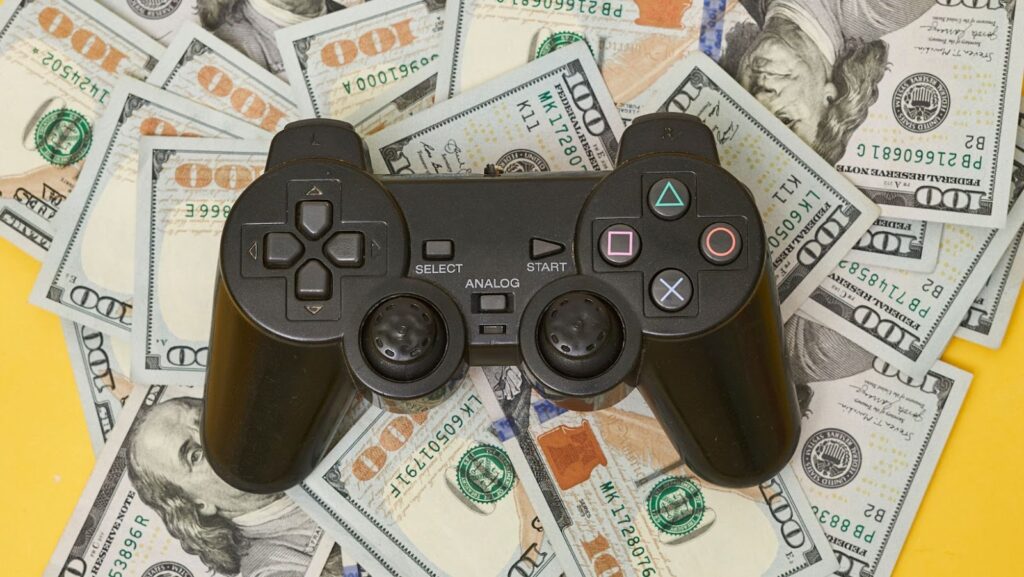The current state of the Russian gaming market

In recent years, the Russian market has seen a surge in the gaming industry. This is due to the growing presence of gaming consoles such as Microsoft’s Xbox, Sony’s PlayStation, and Nintendo’s Wii U. It is estimated that the total value of the Russian gaming industry has reached $3.3 billion in 2019.
Consequently, the Ukrainian government has urged Microsoft and Sony to leave the market. This article will provide an overview of the current state of the gaming market in Russia and explore the implications of the Ukrainian government’s request.
Overview of the Russian gaming market
The Russian gaming market is a sector of the Russian economy where gaming activities such as producing, selling, and distributing games and other related products occur. This market has been experiencing high growth over the recent years due to the growth of online services and investment opportunities in local development. As of 2020, the Russian gaming industry is estimated to generate over RUB 110 billion each year and is expected to continue rising in the next few years.
From a government perspective, several policies are in place designed to promote and protect consumers and developers within this industry. These regulations range from requiring parental control settings within games to providing additional rights for developers seeking financial support from public sources.
Recent events such as Ukraine’s decision to urge Microsoft’s Xbox and Sony’s PlayStation to leave the Russian market have had a lasting impact on this sector. In addition, new models of game creation, services such as streaming platforms for games, virtual reality services for software development, AI capabilities for game automation, e-commerce wide access platforms are gaining prominence in recent times making Russia a more attractive option for gamers worldwide.
Ukraine Urges Microsoft’s Xbox, Sony’s PlayStation to Leave Russian Market
Recent geopolitical tensions between Ukraine and Russia have led the Ukrainian government to urge Microsoft and Sony to cease selling their popular gaming consoles, Xbox and Playstation, within the Russian market.
This statement issued by the Ukrainian government has caused significant ramifications in the international gaming arena. It has perhaps even marked the beginning of a new era of gaming industry regulation.
We’ll examine the current situation surrounding the Ukrainian call for Xbox and Playstation to leave Russia.
Reasons for the call
Ukraine has called for two of the world’s largest and most popular gaming companies, Microsoft’s Xbox and Sony’s Playstation to leave the Russian market due to Russia’s anti-Ukraine sanctions. Ukraine has accused these two companies of cooperating with Russia to enforce their economic sanctions against Ukrainian people. If these companies comply with this request, other Western technology and game companies will likely follow suit or take other measures supporting Ukraine’s call.

Ukraine has asked Xbox and Playstation to withdraw from the Russian gaming market because they have become too closely integrated in the country’s sanctions enforcement system. According to Ukrainian Deputy Prime Minister Dmytro Kuleba, Sony PlayStation’s parent company had authorized a Moscow-based distribution center for games in Russia. Microsoft had employed local staff cut off from other parts of their business network due to the sanctions. Furthermore, according to Deputy Prime Minister Kuleba, Russian authorities had convinced Xbox’ Microsoft’s subsidiary company Groove Music in 2020 to restrict access to Ukrainian citizens across Europe citing “anti-terrorist regulations”.
Although Microsoft or Sony have yet noleased any official statement on this issue, it remains unclear whether they will heed Ukraine’s calls to show solidarity towards Ukiune and its people as a wk losing significant marketshare by refusal. However, observers can only speculate what actions may be taken next until we gain further clarity on their response.
Impact of the call on the gaming market
Ukraine’s call for Xbox and PlayStation to leave Russia has impacted the gaming market in several ways. First, the decision to leave the Russian market will likely limit the potential reach of Xbox and PlayStation gaming services and restrict customers’ access to new releases. Moreover, if these companies do not leave, Ukraine could impose sanctions.
Additionally, the move may have had a substantive financial impact on both companies. The inability of console owners in Russia to access games from Microsoft or Sony may cause financial losses due to customer attrition as younger gamers increasingly opt out of their platforms. Further, there is a decrease in sales revenue since customers may switch to PC gaming instead of purchasing gaming consoles at full price; this implies losses towards both companies’ software publishing divisions.
Finally, other Russian game studios such as Wargaming and Nival Interactive may also be affected. Local developers may notice reduced sales should these game publishing giants boycot the region leading some studios to potentially shut down – thereby significantly affecting competition in the region’s gaming market overall. This call has had far-reaching implications for all stakeholders involved in the Russian gaming market; only time will tell how this conflict plays out in both business and political terms.
Impact of Sanctions on the Gaming Market
Sanctions imposed on Russia by the US, EU and other countries have harmed the Russian gaming market. In addition, the Ukraine’s decision to call for Microsoft’s Xbox and Sony’s PlayStation to exit the Russian market resulted in further restrictions of international gaming companies operating in Russia.
In this article we will focus on how these factors have affected the current state of the Russian gaming market.
Effect of sanctions on the gaming industry
The effects of sanctions on the gaming industry have been significant in the past few years, particularly in Russia and Ukraine. For example, sanctions imposed by Russia against Ukraine in February 2014 dramatically affected the gaming industry. As a result, Microsoft’s Xbox and Sony’s PlayStation were both urged to leave the Russian market, leading to an uncertain future for manufacturers and retailers. In particular, this has disrupted businesses that rely heavily on the purchasing power of Russian customers.

The current situation has resulted in certain restrictions being applied to game developers, distribution channels and technologies deemed questionable from foreign origins, especially those from Western countries. Over recent years, this has led to a sharp decrease in video game titles being developed for the Russian market as companies are forced into using alternative technologies and platforms for their games. Furthermore, many popular game titles from non-Russian countries have been blocked and unavailable for consumers due to sanctions imposed by Russia against nations such as Ukraine.
This uncertainty within the gaming market has negatively impacted smaller local independent developers who would typically distribute their games through popular retail outlets such as Microsoft or Sony – both of which left Russia during this period. While some alternative platforms have emerged since then, these local developers can no longer rely upon established international brands or widely known payment systems. Additionally, this situation weakens not just local. Still, international studios’ abilities also reach audiences outside of Russia or Ukraine due to further sanctions levied against individuals involved in cooperative deals outside their respective country boundaries.
Impact of sanctions on the gaming market
Sanctions imposed by the United States and its European allies on Russia have dramatically affected the Russian gaming market. Since the Ukraine crisis of 2014, Russia has come under economic sanctions that have had a devastating impact on the Russian economy, particularly the gaming industry. These sanctions have drastically reduced the ability of Russian companies to access US dollars, and led to a significant reduction in purchasing power of the average Russian consumer.
The US and EU imposed sanctions against various companies and individuals associated with Russia’s actions in Ukraine, which caused most major tech firms to run afoul of one rule or another. Microsoft’s Xbox and Sony’s PlayStation are two such examples – both companies were forced to depart from the Russian market due to EU sanctions that prevented them from supplying hardware, software or services into the country. This presented a huge obstacle for game developers within Russia who relied upon these hardware products to develop their games: components were no longer available for purchase either in Russia or abroad (due to prohibitive shipping costs).
In addition to these hardware-related difficulties posed by foreign sanctions, there are related issues concerning foreign investments into gaming companies. These investments often come from venture capital funds, technology corporate venture funds among other investors; however, due to increasingly strict measures against doing business with certain countries such as Russia through new U.S regulations (such as OFAC), many investors have had second thoughts about investing or supporting projects originating in Russia altogether.
Consequently, this has significantly weakened the capabilities of local gaming studios while simultaneously stifling their growth potential – leading some local gamers (both players and developers alike) who are particularly affected by these external pressures to abandon their ambitions entirely while others simply prioritize alternative markets outside of Europe/the US where they may find an alternative source of support even if it requires radically reworking their products / concepts prior eventual sale/promotion into Europe or other regional markets not subject to war/sanctions related complications.
Conclusion
In conclusion, the current state of the Russian gaming market is in a state of flux. Russia and Ukraine have long been at odds over the Ukraine Urges Microsoft’s Xbox, Sony’s PlayStation to Leave Russian Market, and the situation has only been exacerbated in recent years. As such, it is difficult to predict the future of the Russian gaming market, and industry players are taking a wait-and-see approach as tensions between the countries continue to escalate.
Summary of the current state of the Russian gaming market
This article focuses on the Russian gaming market and Ukraine’s request that Microsoft’s Xbox and Sony’s PlayStation depart the region. Russia is home to an influx of gaming companies, particularly mobile developers. Despite this rapid growth in development, game sales in Russia remain weak due to the steep taxes imposed on computer games. This tax has encouraged illegal downloads and other forms of piracy because many citizens simply cannot afford legal versions.

Due to this rampant piracy, leading game companies have decided to take their businesses elsewhere or leave the region altogether. One major repercussion from this departure has been that Microsoft and Sony have been asked by Ukraine’s security service to leave the region; citing a “threat to national security” should these actions not be taken immediately.
This decision can be seen as a signal from Ukrainian authorities that foreign powers will not be allowed to interfere with their economies in any way whatsoever.
Ultimately, while there are undoubtedly opportunities in Russia for gaming companies due to its large population and potential income, many developers have chosen to take their business elsewhere due to insecurity issues and Russia’s taxation system. These factors have made it increasingly difficult for game producers to reap the benefits of such a potentially lucrative market.
Future outlook for the Russian gaming market
Recently, Ukrainian officials urged Microsoft’s Xbox and Sony’s PlayStation to cease operations in the Russian market. This decision is based on the events related to the military conflict between Ukraine and Russia in 2014. Consequently, many businesses had to suspend their activities in Crimea, which saw a sharp decrease in market activity.
The news has raised major concerns that this move could create a certain-term ripple effect across multiple countries, indirectly affecting many other gaming markets worldwide. In particular, this decision has brought a lot of uncertainty for the Russian gaming market and local publishers, developers and gamers.
However, even with the current difficulties players face in this region, some potential prospects may arise with time. For example, it may open up an opportunity for local publishers to capitalize on emerging technologies or encourage more innovations from home-grown teams of developers working on world-class products. In addition, mobile gaming is also expected to grow further due to its relatively lower cost and accessibility from anywhere around the world.
Amidst all these developments, it remains unclear how long this uncertain phase might last; however one thing seems certain—that companies involved in the production and sale of gaming products will face a challenging scenario ahead until the situation normalizes in this region.






